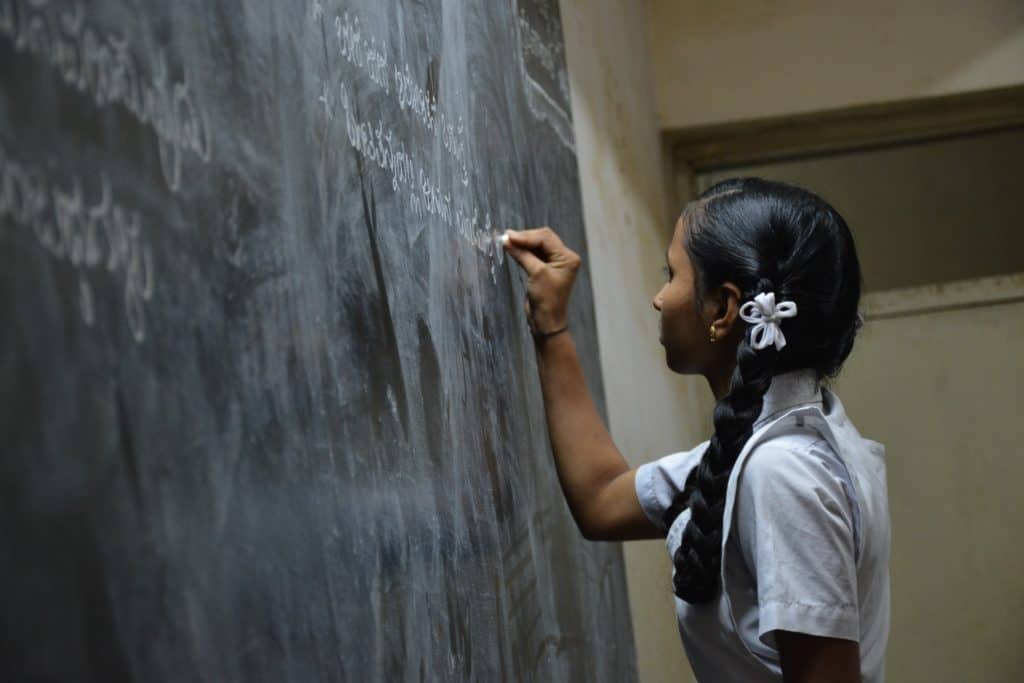Two hundred and six ‘unrecognised’ schools function in Mumbai, according to the Brihanmumbai Municipal Corporation.
Their numbers have reduced from previous years. In 2019-20, there were 230 such institutions and the year before that, there were 244.
Getting Maharashtra government’s Education Ministry to recognise the school means to get a certificate to function on the basis of predetermined requirements such as building safety, teacher-student ratio and curriculum specifications.
In short, the government checks to see if the schools meet the basic minimum criteria required for schools to function well. Therefore, ‘unrecognised’ schools might put the students at risk. But lakhs of students in Mumbai have no choice.
Land prices too high for schools
Most of the ‘unrecognised’ schools in Mumbai exist in informal settlements and generally cater to marginalised communities. “All the schools in Mumbai are expected to have a minimum of half an acre of land for their
building. Many schools struggle to meet this criterion, essentially due to steep land prices in the city. This keeps many schools from getting
government recognition,” says Mahesh Palkar, Education Officer, Brihanmumbai Municipal Corporation.
Half an acre of land (21,780 sq ft) would cost about Rs 32.67 (at Rs 15,000/ sqft) crores in a modest suburb like Malad, according to popular real estate websites like housing.com.
A feat that is impossible for many schools.
Also Read: Studies must go on. Internet or no internet
Mumbai – an exception
Maharashtra Self-financed Schools (Establishment and Regulation) Act, 2012, recognises the skyrocketing realty value of Mumbai.
So, while the schools in other cities of Maharashtra are required to have a minimum of one acre of land for their school premises and schools in rural areas are to have two acres of land, schools in Mumbai are required to have just half acre of land within their premises.
Schools don’t necessarily need to own the land; they could lease it. While seeking state recognition, schools need to submit documents to prove that they have a lease for a minimum period of 30 years.
Playgrounds are deemed necessary for schools according to the Right to Free and Compulsory Education Act, 2009, popularly known as the RTE Act. Schools in Mumbai could cite use of their neighbourhood public playground to fulfill this criteria.
Classrooms are to have a minimum of 8x 6 sq meters to ensure that schools allocate one square meter of space per student, as per the RTE.
These provisions of the RTE Act were meant to ensure that schools adhere to a minimum standard of educational space and infrastructure for students. It also mandated that schools which fail to adhere to these standards be denied recognition.
Schools that fail to get recognition should not be allowed to function, as per the Act.

‘Unrecognised’ schools to close?
The RTE Act recommends a penalty of up to rupees one lakh and in case of continuing contraventions, a fine of ten thousand rupees for each day for the period for which the school functions post withdrawal of its recognition.
“The provisions in this legislation needs to be viewed in the backdrop of the reasons underlying it,” says Kavita Anand, co-founder Adhyayan Quality Education Services, which assesses quality of education in schools. “The important question to be asked is – what sort of classroom and ground space does every student need? Are the premises safe? Will a fire engine reach every part of the school? Is the school able to provide the space for extra curricular activities? What is the entitlement of every child? Are the teachers trained? Why should we have the attitude that playgrounds, activity rooms, assembly spaces and toilet facilities are not important! It should be unacceptable that children be taught by teachers who are untrained and underpaid and never provided with professional development opportunities.”
“There is no way a school can have even a kabaddi ground if they don’t have half an acre,” she adds.
Renewal of recognition
Not only do schools have to get recognised, they are expected to renew it every five years. In 2017, the BMC digitised the process of applying for recognition.
The state board affiliated schools are required to submit as many as 17 documents for renewal. The state seeks documents like structural stability certificate and building plan from an authorised and registered architect, building agreement from the landlord or owner of the school, land details,
copy of the approved building plan; commencement certificate; audit report of past three years, school inspection report etc.
Many schools continue functioning despite not having the recognition, in contravention to the RTE.
Though schools are supposed to get recognition prior to their functioning, many schools are found to function even as the formalities to get recognition remain incomplete.
The BMC does not serve individual notices to schools and instead issues general public notices in a few newspapers. Since most such schools are located amidst slums and patronised by the under-educated, non-newspaper reading sections of the society, many parents continue to be ignorant about the school’s real status.
In fact, since individual notices are not issued, schools themselves are ignorant of their status sometimes. Mother Teresa English School at Kurar Village in Malad, flaunted its government recognition on its school board, even though it figured in the BMC list of unrecognised upper primary section (V-VIII).
Kanchan Shukla, owner of the Mother Teresa English School, says that she was not aware of the Upper Primary section of her school (Class V- VIII) figuring on the list of unrecognised schools because she had not received any intimation from the BMC. “I have already received my U-DISE number (an unique registration number allotted to schools) for the Upper Primary
section and all my papers have already been submitted for processing at Mantralaya. This year our Class X students were registered for board exams from another institution but we should be receiving our recognition very soon,” she says.
Mumbai has about 2541 private primary schools and educate about 727325 students according to the BMC records of 2019-20.
Also read: